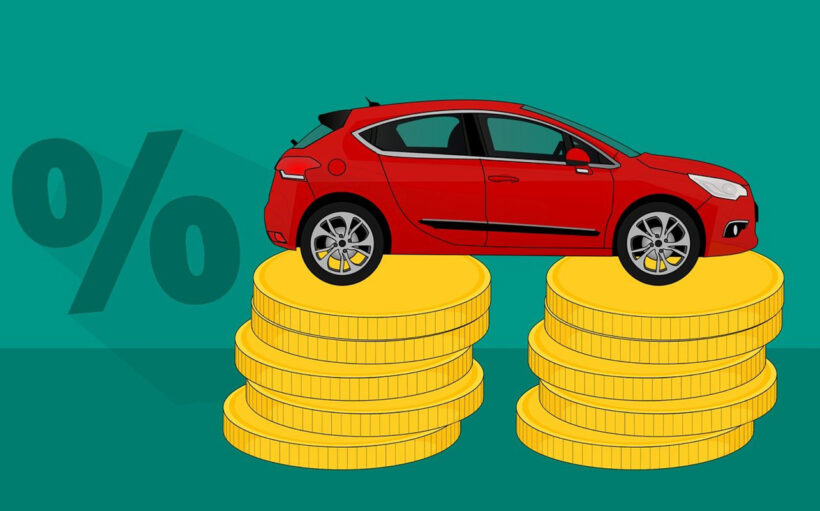Are you a Texan looking to understand car insurance? This is a complete guide to car insurance for Texas drivers. From comparing insurance providers to understanding the basics of insurance products, this guide will help you get the best coverage for your vehicle. Keep reading to find out more.
Auto Insurance in Texas
Auto insurance for Texans is essential for all drivers. It provides financial protection if you’re involved in an accident or your vehicle is damaged due to theft, vandalism, natural disasters, and other incidents.
Car insurance protects you from being held liable for any damages that occur as a result of an auto-related incident. As such, it’s one of the most important types of insurance coverage to have when driving in the state of Texas.
The type and amount of auto insurance coverage required by law vary depending on which part of Texas you live in and what type of car you drive. Generally speaking, minimum liability limits must be met to legally operate a motor vehicle on public roads or highways within the state.
These limits can vary between $30,000 per person or $60,000 per accident (bodily injury) and $25,000 for property damage. However, some areas may require higher amounts depending on their specific regulations.
Uninsured/underinsured motorist coverage may also be needed depending on where you reside; this will provide additional protection should you become injured due to another driver who does not carry enough liability insurance to cover your damages fully or at all.
Factors That Affect Car Insurance Rates
When it comes to understanding how your age, gender, and driving record influence auto insurance rates in Texas, there are a few key considerations that should be taken into account. Age is one of the most significant factors when it comes to determining insurance premiums.
Typically, younger drivers can expect higher rates as they have less experience on the road and statistically pose more of a risk for insurers.
As drivers get older, their rates tend to decrease due to increased awareness behind the wheel and fewer risky driving behaviors such as speeding or reckless driving.
Gender is also considered by some insurers when setting rates; men tend to be charged slightly higher than women because, statistically, they’re more likely to engage in dangerous activities while operating a vehicle.
Finally, an individual’s driving record will greatly affect their premium rate; those who have had recent tickets or accidents will pay significantly more than those with safe driving records over time. All of these factors play an important role in influencing insurance costs for Texans, so prospective policyholders need to consider them before purchasing coverage.
Liability and Comprehensive Coverage
Liability coverage is a type of insurance that protects drivers if they’re found at fault for an accident. It covers any medical bills, property damage, and other costs incurred as a result of the accident.
Liability also pays out compensation if someone else is injured or killed due to an at-fault driver’s negligence. This form of coverage is required by law in Texas, so all auto insurance policies must include it.
It’s vital to note that liability insurance only covers expenses related to accidents where you’re deemed responsible. Therefore, liability insurance does not cover any damages done directly to your vehicle or injuries sustained by yourself during said incidents. In these cases, comprehensive/collision or personal injury protection (PIP) will take effect instead.
Ultimately, understanding how liability works can help Texans make informed decisions when purchasing auto insurance policies since having enough coverage can be essential in protecting against financial hardship following an unexpected car crash.
Altogether, this auto insurance guide for Texas residents is an invaluable resource for drivers in the state. It provides a quick overview of the insurance landscape in Texas, helping Texas drivers understand the various coverage options available and the importance of having adequate coverage.
Understanding Texas Car Insurance Discounts

Maximizing savings on car insurance in Texas involves understanding the various discounts available. Insurers in Texas offer a variety of discounts that can significantly reduce premiums.
Common discounts include those for safe driving, multi-car policies, anti-theft devices, and defensive driving courses. For instance, completing a state-approved defensive driving course not only improves driving skills but can also lead to reductions in premiums.
Insurance companies may also offer discounts based on age, particularly for older drivers with a long history of safe driving. Additionally, students with good academic records might be eligible for discounts.
Vehicle-related discounts are also common, with savings for features like anti-lock brakes, airbags, and other safety equipment. Texas drivers need to inquire about these discounts when shopping for insurance, as they can substantially lower the cost of premiums while maintaining the same level of coverage.
Special Considerations for Texas Auto Insurance

Texas’s unique landscape and climate bring special considerations for car insurance. The state’s frequent severe weather events, such as hailstorms, hurricanes, and flash floods, mean that comprehensive coverage is particularly important for Texas drivers. This type of coverage protects against non-collision-related damages, such as those caused by natural disasters or theft.
Furthermore, Texas’s vast size and rural areas can impact insurance needs. Drivers in remote areas might need additional coverage due to the increased likelihood of encounters with wildlife or the lack of nearby emergency services.
Roadside assistance coverage, for instance, becomes more crucial for those traveling long distances or through sparsely populated areas. By understanding these unique aspects of living and driving in Texas, motorists can better tailor their auto insurance policies to ensure they have adequate protection against the diverse risks they face on Texas roads.
Navigating Policy Renewals and Claims in Texas
For Texas drivers, efficiently handling policy renewals and claims is key to maintaining continuous coverage and receiving timely assistance after incidents. Renewal time offers an opportunity to reassess coverage needs, potentially leading to better rates or more suitable protection.
Prompt and accurate reporting of incidents is crucial for a smooth claims process. Being aware of the specific procedures and documentation required by your insurer can expedite claims and ensure you receive the benefits of your policy without unnecessary delay. This aspect of auto insurance, though often overlooked, is fundamental for hassle-free driving in Texas.





